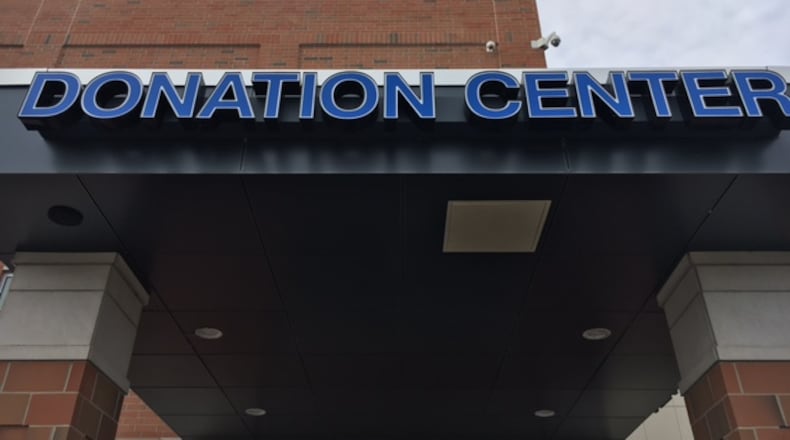The torrent of jobless claims continued last week, although the flow of layoffs lessened amid signs that some sectors of the Georgia economy are starting to recover.
The state Department of Labor processed more than 135,000 new claims, down 14,000 from the previous week. About 2.5 million Georgians have filed for unemployment since the crisis began in early March. The state unemployment rate now stands at 11.9%.
Restaurants, hotels and bars have been hit hardest by the pandemic-triggered shutdowns, and the largest pool of claims reflects that. But the pain has spilled across the spectrum. This week, for example, the Atlanta-based American Cancer Society announced it was cutting 1,000 jobs because of virus-related revenue losses.
To handle the unprecedented number of claims, the DOL added staff while many employees have worked overtime, but the department has still not caught up. Thousands of jobless Georgians have waited weeks and sometimes months for the start of weekly payments.
Last week, roughly one of every eight workers in the state was receiving jobless benefits — 620,172 people, according to Kersha Cartwright, spokeswoman for the state Department of Labor.
At the worst of the Great Recession, 502,882 Georgians were unemployed, and the rate peaked at 10.6%.
The current state unemployment rate may understate the actual damage, according to Ray Sandza, vice president of Homebase, a San Francisco software company with data from 60,000 businesses: About 30% of the small business jobs that existed in Georgia before the pandemic do not exist now, he said.
Nationally, about 42.5 million claims have been processed, including 1.5 million last week, according to the U.S. Labor Department.
The nation’s unemployment rate unexpectedly ticked down last month from 14.7% to 13.3%, sparking hope that the economy had bottomed out and was again expanding.
The monthly jobs report for Georgia is not due until next week, but there is a clamor for workers in some sectors, according to Jon Neff, chief operating officer of Hire Dynamics, a Duluth-based staffing firm that provide workers around the Southeast.
Because staffing companies supply “just in time” labor, they can often see which direction the economy is heading before government data shows it.
The burst of new jobs in e-commerce, grocery stores and food manufacturing has continued, but hiring in the rest of the job market is much less enthusiastic, he said.
“I think there’s a general desire to get back to normal, but we are seeing a tentativeness because of worry about a second wave. This is not an economic cycle, it’s a health issue.”
Some retail has reopened: Goodwill of North Georgia, for example, on Thursday opened a new store in Sandy Springs, adding 30 jobs. But most of the sector has barely gotten off the canvas, Neff said.
“Brick and mortar retail has been very slow in coming back. And auto – manufacturers and suppliers – are still near a halt.”
Concerns about the coronavirus has dampened the desire of many workers to return to jobs – a reluctance enhanced by unemployment benefits that pay more than low-paid jobs, Neff said.
State benefits range from $44 to $365 a week, to which is added the temporary $600 payment from the federal government. To encourage workers to take part-time work if it’s offered, the first $300 of weekly earnings does not count against a worker’s eligibility.
Long-term, only a coronavirus vaccine will enable a full recovery, said Rajeev Dhawan, director of the Economic Forecasting Center at Georgia State University, during MarketWatch Atlanta, an online conference.
“Only by late ’21 are you going to see a real comeback,” he said. “That’s when the normal recovery begins.”
In the meantime, the state’s economy will struggle, Dhawan said. “We are going to lose about 760,000 jobs this year.”
The state Department of Labor has paid more than $1.4 billion in weekly state jobless benefits and $3.6 billion in federal benefits since March 21. Economists say those payments have softened the blow for many households, preventing evictions while providing needed money for groceries.
A protracted recovery will mean that many people will continue to lack paychecks, said Andrew Stettner, a senior fellow at The Century Foundation and an expert on unemployment insurance. “The unemployment crisis is slowly improving, but … benefits will continue to play an essential role in the recovery for months to come.”
Sectors represented in last week’s jobless claims
Accommodation and Food Services: 30,177
Retail Trade: 14,247
Health Care: 13,000
Manufacturing: 13,000
Administrative and Support Services: 12,725
Source: Georgia Department of Labor
Initial jobless claims processed in Georgia
March 21: 12,140
March 28: 133,820
April 4: 390,132
April 11: 319,581
April 18: 247,003
April 25: 266,565
May 2: 228,352
May 9: 242,772
May 16: 177,731
May 23: 165,499
May 30: 149,163
June 6: 135,254
Source: Georgia Department of Labor
About the Author
Keep Reading
The Latest
Featured




